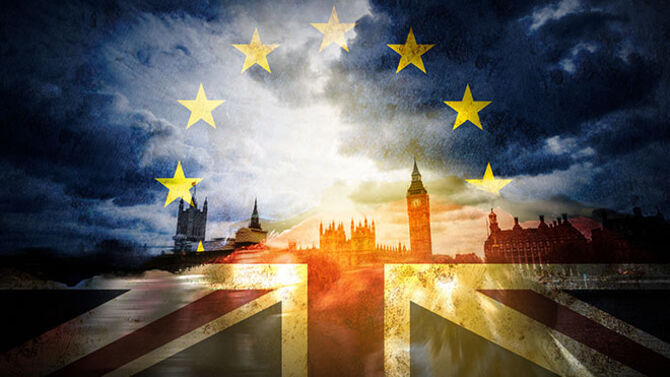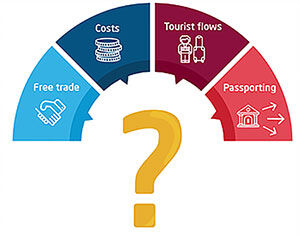Brexit: What happens if a deal can’t be reached?
There are many questions that need answering for British business in the run up to Brexit. Colin Ellis from Moody’s Investors Service answers some of the key questions surrounding Brexit.

What will Brexit look like?
Nobody knows! The UK and the rest of the EU are trying to dissolve a long-standing relationship, and then construct a new and lasting one that could look very different. Our base case is that the two sides eventually – and I emphasize eventually – come to an arrangement that preserves many aspects of current arrangements, but certainly not in their entirety. For instance, while a free trade deal for goods should be achievable (given that the EU recently agreed one with Canada, and has agreed an outline with Japan), UK exporters to the EU would still likely face new costs, delays and bureaucracy.Similarly, while it is likely that tourist flows between the EU and UK will be preserved, the precise form of this is uncertain. One area where things could look very different post-Brexit is financial services: we think ‘passporting’, where banks in the UK can do business freely in the rest of the EU and vice versa, is probably dead.
What do we need to think about in a no-deal situation? (tariffs/travel etc)
It is tempting to focus on the transactional aspects of a no-deal scenario, such as what exporting will look like. In principle, there could be new tariffs imposed by both the EU and the UK if no deal is reached; and greater delays in transportation of goods due to increased inspections at the border. As such, supply chains dependent on just-in-time delivery of goods from the EU to the UK, and vice versa, could be severely affected. However, given that UK exporters are more likely to price-to-market and the UK has a floating currency, the exchange rate could be a key adjustment mechanism over the longer term.However, ‘no deal’ also matters for a number of current institutional arrangements that may currently be taken for granted. For instance, the UK’s withdrawal from the European Atomic Energy Community implies that the UK will need to establish a new regime to oversee the sector, and to establish new cooperation agreements with other countries, as otherwise nuclear-related imports would cease. Similarly, the aviation sector could be dramatically affected by a ‘no deal’ scenario, as the international treaties that the UK is currently party to as a member of the EU (under the European Common Aviation Area, ECAA) would no longer apply. An overnight loss of air travel rights between the UK and countries in the ECAA, as well as countries with which the ECAA has treaties in place, could have a dramatic impact.How are different sectors responding to Brexit?
It is fair to say that the picture is mixed both across and within sectors. My impression is that the banking sector is one of the most advanced in its planning and preparation, in part because many in the sector acknowledge that current arrangements will not persist. However, across other sectors there appears to be a sizeable number of firms that are not very advanced with contingency planning or other Brexit-related activities.In some instances, this reflects a view that the negative economic consequences of ‘no deal’ are so significant that mutual interest must ensure that agreement is reached. Personally, I find this worrying: it is perfectly possible that, whatever economic incentives suggest, political choices result in more damaging economic outcomes.For more news and interesting articles answering your questions about Brexit, visit the Brexit Series website. Click here to find out more about the upcoming Brexit Business Planning Forum, London.For related news and features, visit our Brexit section.Access hundreds of global services and suppliers in our Online Directory Get access to our free Global Mobility Toolkit
Get access to our free Global Mobility Toolkit 
©2025 Re:locate magazine, published by Profile Locations, Spray Hill, Hastings Road, Lamberhurst, Kent TN3 8JB. All rights reserved. This publication (or any part thereof) may not be reproduced in any form without the prior written permission of Profile Locations. Profile Locations accepts no liability for the accuracy of the contents or any opinions expressed herein.






































